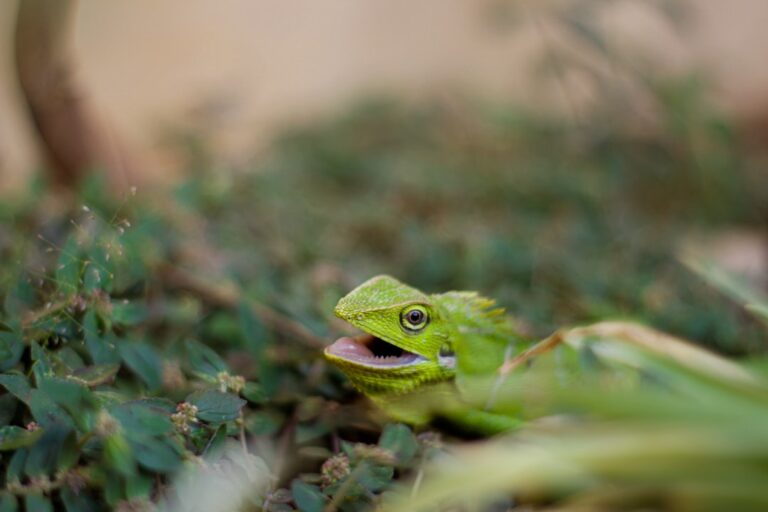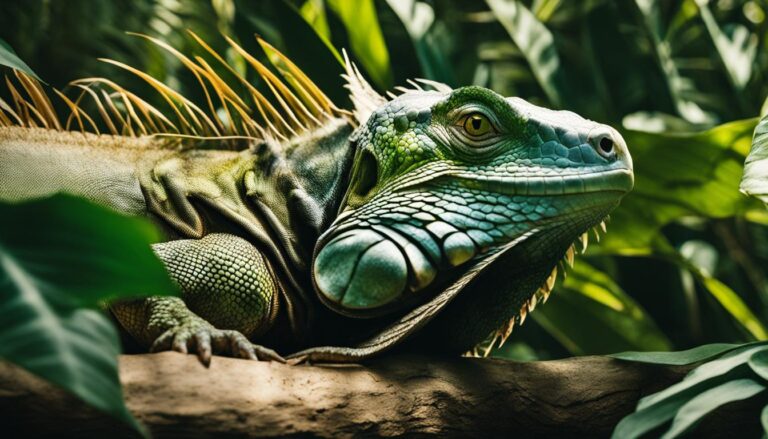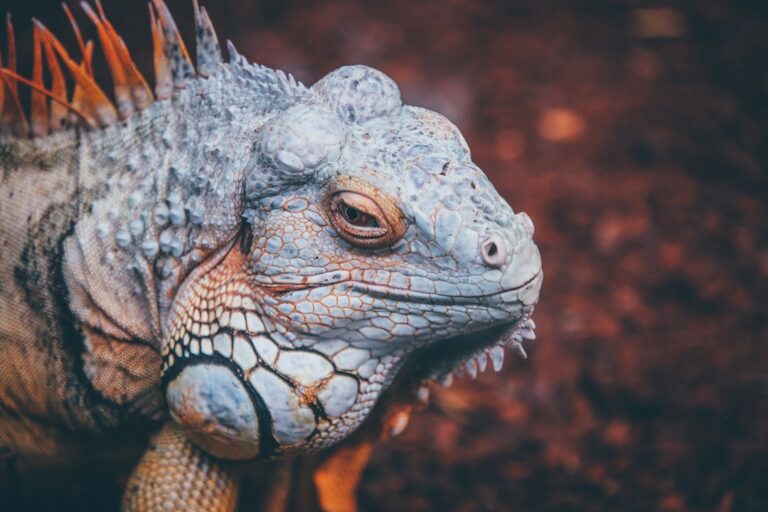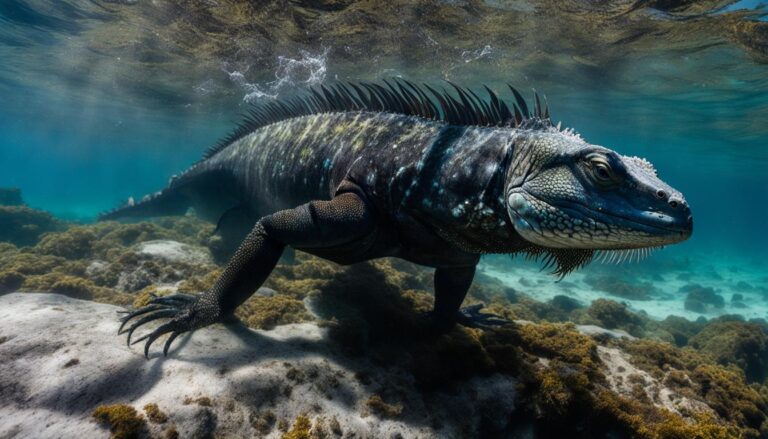Do Iguanas Kill Birds?
Iguanas and birds are two fascinating creatures that inhabit various parts of the world. Iguanas are large lizards known for their distinctive appearance and behavior, while birds are a diverse group of animals known for their ability to fly. Understanding the interactions between these two species is important for several reasons. Firstly, it helps us gain insights into the natural behavior and instincts of both iguanas and birds. Secondly, it allows us to identify potential conflicts or threats that may arise from these interactions. Lastly, it provides us with the knowledge needed to develop strategies for coexistence and conservation.
Table of Contents
Understanding Iguana Behavior towards Birds
To understand how iguanas interact with birds, it is essential to examine their natural instincts and behaviors. Iguanas are primarily herbivorous reptiles, meaning they primarily feed on plants and vegetation. They are known for their excellent climbing abilities, which allow them to access treetops and other elevated areas where birds often reside. Iguanas also have keen eyesight and can detect movement from a distance, making them aware of the presence of birds in their surroundings.
When it comes to perceiving birds, iguanas may view them as potential threats or sources of food. Their natural instincts drive them to be cautious around predators, including birds of prey. However, they may also see smaller birds as potential prey if they are hungry or if the opportunity presents itself. Understanding these perceptions can help us anticipate how iguanas may behave in the presence of birds.
Factors that Influence Iguana-Bird Interactions
Several factors influence the interactions between iguanas and birds. One significant factor is the habitat and environmental conditions in which they coexist. Iguanas are commonly found in tropical regions with dense vegetation, while birds can inhabit a wide range of habitats, including forests, grasslands, and wetlands. The availability of food and resources also plays a crucial role in shaping their interactions. If food sources are scarce, iguanas may be more likely to hunt birds for sustenance.
Human activities and interventions can also impact the dynamics between iguanas and birds. Urbanization and habitat destruction can disrupt the natural balance between these species, forcing them to compete for limited resources. Additionally, the introduction of non-native species, such as iguanas in certain regions, can have unintended consequences on native bird populations. Understanding these factors is essential for managing and mitigating potential conflicts.
Do Iguanas Hunt Birds for Food?
While iguanas are primarily herbivorous, there have been instances of them preying on birds. However, it is important to note that these instances are relatively rare and not a common behavior among iguanas. The diet of iguanas consists mainly of leaves, fruits, flowers, and other plant matter. They have specialized teeth and digestive systems that are adapted for processing plant material.
Instances of iguanas preying on birds are more likely to occur when their usual food sources are scarce or when they are in captivity and not provided with a suitable diet. In these cases, iguanas may resort to hunting small birds as a means of survival. However, it is crucial to provide iguanas with a proper diet to prevent such behaviors from occurring.
Iguanas and Nesting Birds: A Threat to Eggs and Chicks?
One area where iguanas can pose a threat to birds is during the nesting season. Many bird species build nests on trees or in other elevated areas to protect their eggs and chicks from predators. However, iguanas’ climbing abilities allow them to access these nests and potentially prey on eggs or chicks.
The impact of iguanas on nesting birds can be significant, especially if they are present in large numbers or if the bird population is already vulnerable. Iguanas can consume eggs or chicks, reducing the reproductive success of bird species. This can have long-term consequences for the population dynamics and overall conservation of these birds.
Predatory Instincts vs. Domestication: Can Pet Iguanas Kill Birds?
When it comes to pet iguanas, the risk of them killing birds is relatively low. Pet iguanas are typically raised in captivity and provided with a controlled diet that consists of plant matter. They are not exposed to the same environmental factors and instincts that wild iguanas possess.
However, it is essential to note that pet iguanas can still exhibit predatory instincts, especially if they are not properly socialized or if they are exposed to small birds or other small animals. It is crucial for pet owners to provide a safe and enriching environment for their iguanas and to ensure that they are not exposed to potential prey species.
Protecting Birds from Iguana Attacks: Tips and Strategies
For bird owners or individuals concerned about the potential threat of iguanas to birds, there are several preventive measures that can be taken. Firstly, it is important to create a bird-friendly environment that minimizes the risk of predation. This can include providing nesting boxes or platforms that are inaccessible to iguanas, such as placing them at a height or using predator guards.
Secondly, deterring iguanas from bird habitats can be achieved through various methods. These can include using physical barriers such as fences or netting to prevent iguanas from accessing nesting areas. Additionally, creating a habitat that is less attractive to iguanas, such as removing potential food sources or creating areas with dense vegetation where iguanas are less likely to venture, can also be effective.
Legal Implications of Iguana-Bird Conflicts
In some regions, there may be laws and regulations in place that govern the interactions between iguanas and birds. These laws are designed to protect both species and ensure their conservation. Violating these laws can result in legal consequences, including fines or other penalties.
It is important for individuals to familiarize themselves with the specific laws and regulations in their region regarding iguanas and birds. This knowledge can help guide responsible actions and prevent conflicts that may harm either species.
Iguanas and Bird Conservation: Finding a Balance
Finding a balance between the conservation of both iguanas and birds is crucial for maintaining biodiversity and ecosystem health. Both species play important roles in their respective ecosystems, and their interactions can have far-reaching effects.
Preserving the natural habitats of both iguanas and birds is essential for their conservation. This includes protecting areas with high biodiversity, such as tropical forests or wetlands, where both species can thrive. Additionally, implementing conservation strategies that address the specific needs of each species can help mitigate potential conflicts.
Living in Harmony with Iguanas and Birds
In conclusion, understanding the interactions between iguanas and birds is important for several reasons. It allows us to gain insights into their natural behavior, identify potential conflicts, and develop strategies for coexistence and conservation. While instances of iguanas hunting birds are relatively rare, they can pose a threat to nesting birds’ eggs and chicks. Pet iguanas are less likely to exhibit predatory behaviors but should still be provided with a suitable diet and environment.
Protecting birds from iguana attacks can be achieved through preventive measures such as creating bird-friendly environments and deterring iguanas from nesting areas. It is also important to be aware of the legal implications surrounding these interactions and to comply with relevant laws and regulations.
Ultimately, finding a balance between the conservation of both iguanas and birds is crucial for maintaining biodiversity. Preserving their natural habitats and implementing targeted conservation strategies can help ensure the long-term survival of both species. By living in harmony with iguanas and birds, we can contribute to the preservation of our natural world.
If you’re curious about the eating habits of iguanas, you might also be interested in learning about whether they eat rats. In a related article on Reptile Friend, you can explore the topic of “Do Iguanas Eat Rats?” and discover if these reptiles have a taste for rodents. To find out more, click here.







